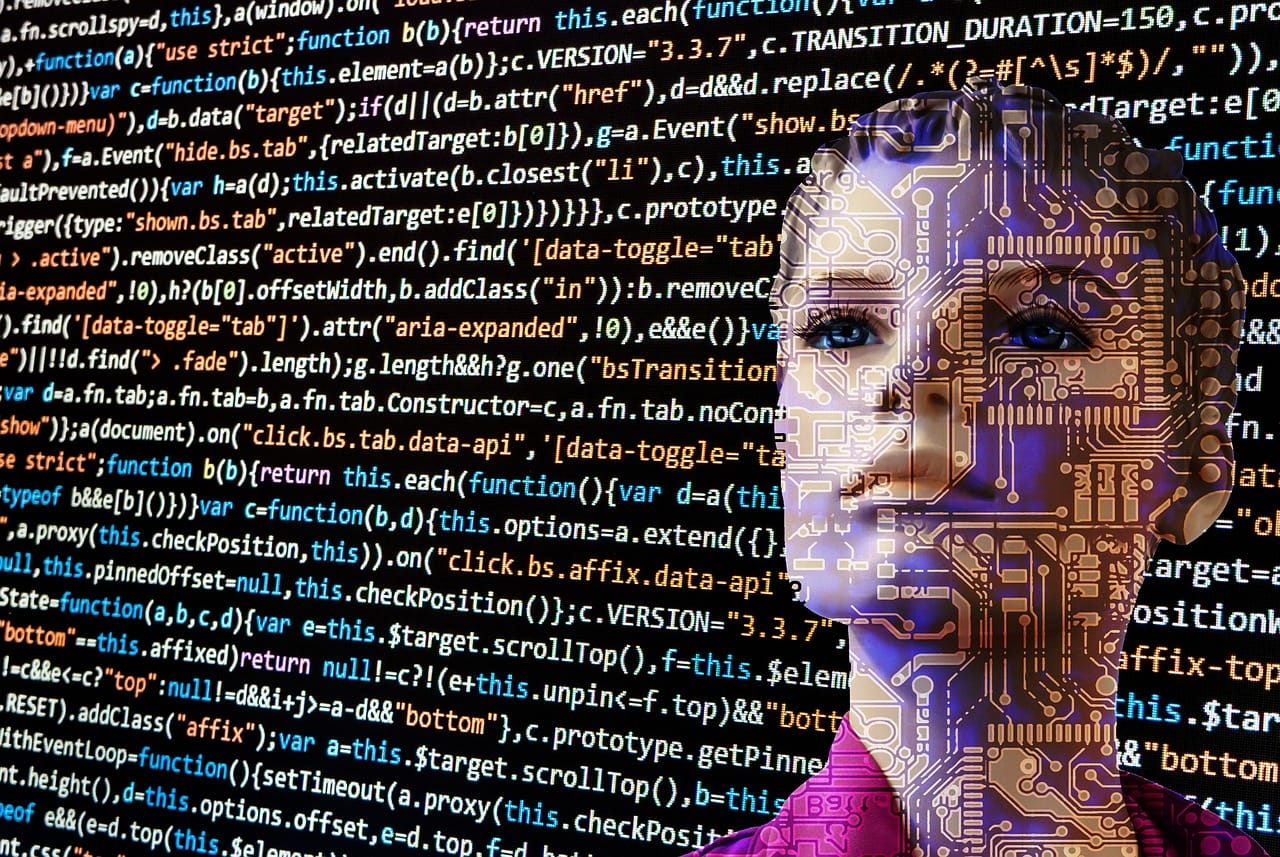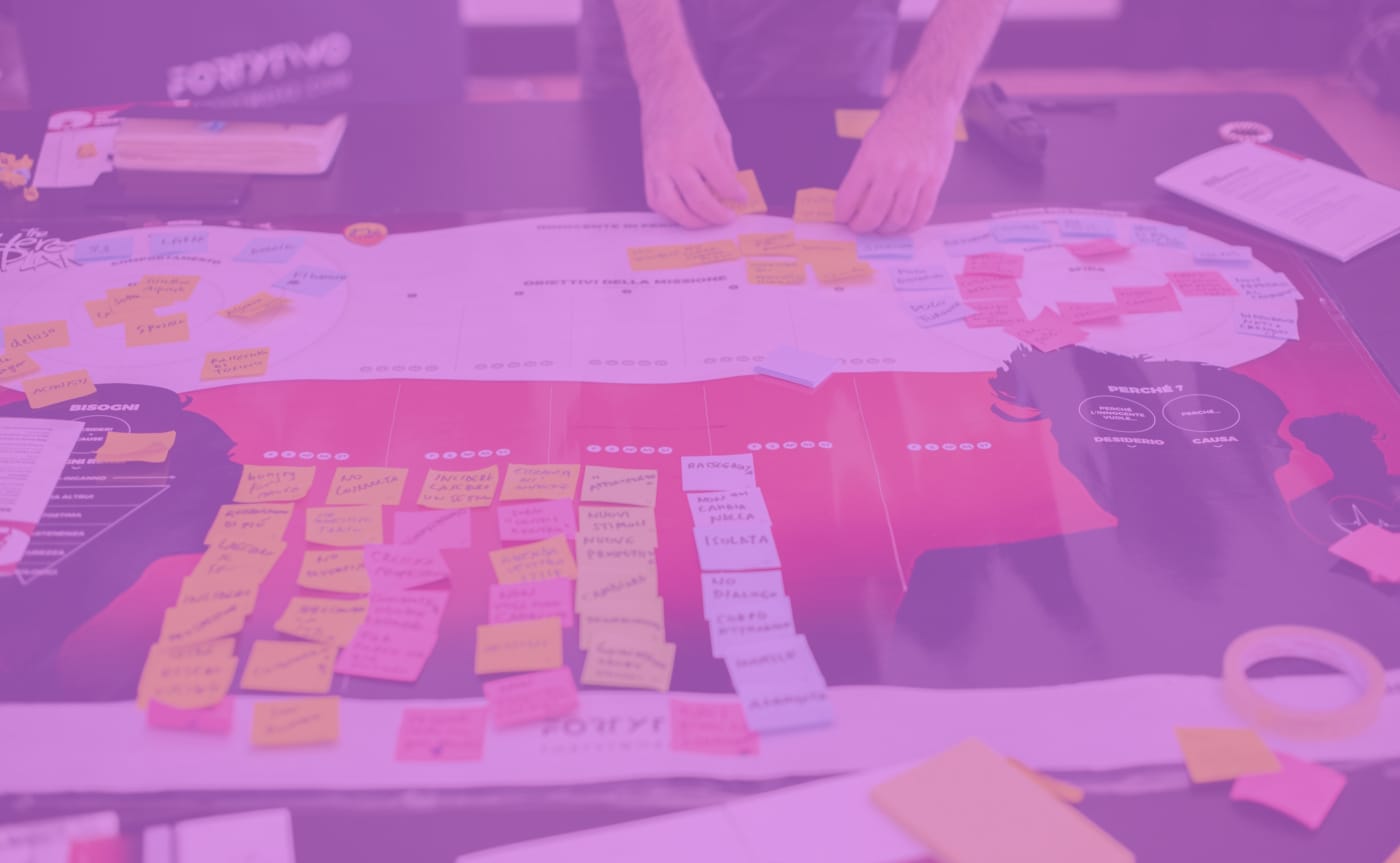
Businesses across the globe are attempting to outdo their opponents, turning towards Artificial Intelligence (AI) technology in order to detect opportunities and develop instruments that will elevate their functions. AI tools have been employed for a plethora of purposes; from automating mundane tasks to revolutionizing how these businesses connect with customers. The following blog post delves into how enterprises are exploiting AI technology in building new applications and devices which can aid them to remain competitive whilst making wiser decisions. Examples of already existing AI-driven apparatus employed by companies along with the advantages they bring about will be examined hereinafter. Lastly, it is mentioned as well how such equipment might be utilized in times ahead for more ingenious solutions

Exploring the rise of AI tools in businesses
AI technology has been deployed in businesses for a number of years, but recently there has seen an unprecedented boom in utilising AI tools for commercial objectives. This is due to the burgeoning supply of formidable computing resources and machine learning algorithms which enable companies to design more exact and efficient systems that can automate duties and processes. Businesses have quickly recognised the potential these new devices offer, with many now investigating how they can incorporate them into their own operations. This type of software is used to identify objects in images or videos, such as faces and products. Object recognition can be useful for various applications including security surveillance, identifying fraud patterns or analyzing customer behavior from video footage.
Businesses are taking advantage of AI technology through natural language processing (NLP). Using sophisticated algorithms, companies gain insights into data derived from text or speech sources e.g., conversations with customers and product reviews. NLP also enables automated agents that dispense replies without human interference swiftly responding to consumers’ queries. Moreover, object recognition software is employed by organizations making use of AI too; this detects items within pictures and films like faces & merchandise helping with activities ranging from the control over safety installations to comprehending buyers’ behaviour via visual recordings.
This software type utilises computer vision algorithms to distinguish objects in images or recordings, for example, countenances or stock being sold on the web. Companies are applying this kind of programming for facial acknowledgment and furthermore item identification purposes in electronic business stores or inventory management frameworks. Furthermore, organisations have started enquiring about potential uses of AI-controlled chatbots and virtual colleagues too. These programmes use artificial intelligence calculations to produce captivating talks with clients over various stages like sites and online media locales such as Facebook Messenger or Slackbot.
It is becoming increasingly evident that businesses are beginning to leverage predictive analytics driven by machine learning models. These models analyse vast datasets so as to make predictions regarding forthcoming trends based on past patterns in the data set itself. Furthermore, they can be used by marketers who seek a deeper comprehension of how customers behave thus enabling them to create more effective campaigns targeted at particular audiences. With these thrilling potentials, it comes as no surprise that numerous companies across various industries have adopted AI technology over recent years! Additionally, such technologies may also be employed for customer service tasks including answering questions about products and services providing advice concerning individual topics aiding shoppers buying things online or even just helping them find information quickly when navigating a website’s content database.

Unveiling different types of business AI applications
Businesses have been taking advantage of AI technology to construct potent new tools and applications which are revolutionising the manner in which we work. For decades, AI has been employed across multiple industries but it recently experienced an eruption of incorporation within business domains. With such applications, organisations can gain understanding into their patrons, mechanise mundane undertakings and produce fresh products on a timely basis more quickly than before.
AI may be classified into two primary categories: supervised learning and unsupervised learning Supervised learning involves training a computer to identify patterns from existing datasets while unsupervised learning is when the machine learns autonomously without any input from humans. Both types of artificial intelligence can be implemented for various business objectives, depending on what insights are desired or how it is desired for the system to learn. For example, supervised learning may be utilised in customer segmentation so as to comprehend consumer behaviour more effectively or tracking marketing campaigns performance so that businesses know which promotions yield the best results with their target audience.
Unsupervised learning can analyse datasets, such as consumer purchase histories or web searches, to detect trends that may suggest potential opportunities and risks for companies before they make decisions in regard to their strategies. Additionally, AI is employed in areas of energy management, fraud detection, inventory optimisation and predictive maintenance – offering valuable insights into operations that would otherwise need thorough manual analysis by people.
The utilization of AI systems as opposed to human labour has enabled companies to not only save time and money but also gain access to more precise data-driven results than they could acquire through manual means due to the absence of resources or knowledge gaps within their teams. The scope of AI’s applications is extensive – comprising natural language processing (NLP) tools such as chatbots that can answer customer inquiries 24/7; machine vision technologies that are able to detect objects in images; predictive analytics machinery designed for anticipating future outcomes; recommendation engines tailored specifically towards retail outlets;; robotic process automation solutions created with streamlining routine tasks in mind; and autonomous vehicles equipped enough to navigate traffic without any major intervention from humans just being a few examples.
Understanding how tool automation is redefining work
In the modern business milieu, tool automation is transforming how firms utilise AI technology to form novel tools. Automation has become a pivotal component of many businesses as it can help simplify procedures and augment efficiency. By exploiting machine learning and artificial intelligence, enterprises are able to automate tasks that otherwise would have been completed manually, aiding them in preserving time and capital whilst attaining the task correctly. One technique whereby automation is being exercised within commerce is via robotic process automation (RPA).
RPA automates manual tasks such as data entry or paperwork processing through the usage of a computer program that follows pre-programmed instructions to execute specific duties. This dispenses with the demand for humans to conduct these laborious jobs and permits businesses to focus on more intricate ventures. Additionally, RPA can be amalgamated with other AI technologies like natural language processing (NLP) or machine vision systems (MVS) in order to achieve even greater efficiency gains. Businesses are also harnessing AI technology via chatbots or virtual assistants. Chatbots are becoming increasingly popular among firms of all sizes due to the customer service they provide without needing to hire extra staff members and because of their tirelessness. AI-powered analytics tools have also been created recently, empowering businesses to gain meaningful insights into their operations by analysing large amounts of data swiftly and accurately in real time. An example would be detecting patterns in consumer behaviour which could then be exploited by marketers for tailored campaigns or sales teams for enhanced lead management strategies – all with no human input at all! Realising how tool automation works enables organisations to develop their products more efficiently than ever before whilst saving resources too, thus making it essential for any prosperous organisation today. These automated applications can interface with customers via text messages or voice commands, offering them answers quickly and precisely without necessitating a human employee’s help each time support is needed.
The Role of artificial intelligence in technology transformation
As businesses look ahead, Artificial Intelligence (AI) is acquiring more and more significance. AI has been applied to a wide range of sectors for a long time – from robotics to medicine. Yet lately there has been an upsurge in the utilisation of AI with regards to reshaping and designing new tools for businesses.
There are only several key methods by which companies can exploit AI so as to create or enhance their services and products. One of the most prevalent utilisations is predictive analytics, which leverages machine learning algorithms to detect patterns or trends in data sets that can help foresee customer behaviour or market shifts. This technology could be advantageous for prognosticating user requirements or forecasting sales expansion. Additionally, AI may be conjoint with natural language processing (NLP) technology to recognise user objectives from textual information sources such as emails and social media posts; thus providing an understanding of customer sentiment about a service/offering.
Companies are exploiting Artificial Intelligence (AI) for automated decision-making procedures, such as robotic process automation (RPA). This allows businesses to mechanize monotonous duties usually taken on by human beings, including entering data into a database or processing orders in an e-commerce store. By automating certain processes with AI technologies, companies can optimize their workflow while raising accuracy and cutting costs linked to manual labour-intensive activities like document processing and customer service calls.
Major tech firms like Google and IBM Watson have even begun developing more advanced applications of artificial intelligence which let machines ‘think’ closer to how humans do – due mostly to natural language handling abilities as well as deep learning algorithms that train systems through time using reinforcement studying strategies applied on vast datasets that comprise millions of instances across various domains. It is this form of sophisticated technology which will take commercial automation up another level – offering them access to valuable insights based upon their customers’ behaviour rapidly yet precisely whilst boosting efficiency throughout the board.”

Case studies: Successful implementations of Business AI
The deployment of Artificial Intelligence (AI) is eliciting an upsurge in the corporate world. Not simply does it allow companies to mechanise menial tasks and augment productivity, but also allows a possibility for them to produce inventive new tools. AI technology is employed across various domains, from automating customer care systems to using facial recognition software in shops. Whilst some businesses remain uncertain about committing capital to AI owing to its price tag, those that have undertaken this investment are witnessing remarkable rewards.
Case studies furnish a great insight into how businesses can utilise AI technology competently and efficaciously. By scrutinising successful implementations of Business AI, other companies may discern motivation and ideas for their own undertakings. As an example, one firm managed to reduce its customer service costs by nearly half when it executed an automated chatbot powered by AI technology. This enabled them to economise on staffing costs while additionally equipping customers with 24/7 access to support services round the clock.
For companies looking to stay competitive in their respective markets, the incorporation of Business AI is essential. By employing this technology-driven approach, businesses can benefit from predictive analytics and targeted marketing campaigns based on individual user data collected from a variety of sources such as social media accounts or online surveys. This allows for organisations to gain greater insight into target market needs and preferences which assists them in creating more effective strategies geared towards successfully resonating with audience members beyond that which traditional methods could offer alone.
It must be noted however that implementing an appropriate Business AI solution tailored specifically towards each organisation’s requirements requires careful planning; yet through doing so they will achieve higher levels of productivity and efficiency leading to potential unprecedented success within their industry sectors without placing excessive strain upon existing resources or personnel workloads.
How AI is Shaping the future of business operations
AI technology is aiding businesses to form their prospective operations by reconfiguring the manner in which they complete tasks. AI-run intelligent automation (IA) can automate repetitive and monotonous duties, liberating resources for more imaginative problem-solving and offering quicker response times. Moreover, AI technologies are prompting a greater comprehension of customer behaviour, permitting organisations to customise their services and goods for each separate client. Through taking advantage of predictive analytics tools, companies can guess at consumers’ needs before even arising – granting them superiority over rivalry.
Furthermore, businesses are taking advantage of the potential of Artificial Intelligence (AI) to not only increase operational efficiency but also generate new products and services. A prime example of this is Natural Language Processing (NLP), which can be employed in order to create chatbots that help customers with queries or offer product recommendations swiftly. AI-powered facial recognition software has been popularised by organisations including Apple and Facebook as a way to strengthen security measures on devices such as iPhones or laptop computers. Additionally, machine learning algorithms have found application within finance divisions for detecting fraudulent activity faster than manual processes alone could ever hope to achieve.
The development of autonomous vehicles like driverless cars will potentially transform transportation systems over time; from fleets operated without human drivers through automated delivery vans functioning independently across cities – neither requiring nor relying upon any human input! The scope afforded by utilising AI technology within business operations appears endless, revealing no signs at present indicating even the slightest slowdown – its use seems limited solely by our own imagination.”
Insights into potential challenges and solutions with Business AI
In the current epoch, enterprises are progressively turning to AI technology to create fresh tools and augment their operations. Oftentimes, this has resulted in a considerable betterment of efficiency and lucrativeness for firms. Nevertheless, while organisations acknowledge the potential of AI technology, there remain certain issues linked with its usage that must be faced head-on. Grasping these problems is indispensable if companies want to maximise the advantages provided by using Artificial Intelligence in their activities.
A primary difficulty concurrent with Business AI is data security and privacy anxieties
It is imperative that businesses take measures to secure the data being processed by Artificial Intelligence (AI) technology, as it can process large amounts of information rapidly and accurately. Companies must also ensure user privacy when they adopt these technologies; shielding personal details from unauthorized access or use at all times whilst adhering to any relevant laws protecting customer info confidentiality. Additionally, enterprises should guarantee their compliance with applicable regulations concerning data protection. Bias in AI presents another challenge for firms using this technology.
When crafting algorithms or other models for making decisions within an organisation, it is essential that companies remain cognizant of any potential prejudice in such choices so they can adapt or abolish them appropriately to avert discrimination against specified individuals or demographics based on gender, race etc.
In conclusion, businesses should contemplate implementing fairness monitoring systems into their existing frameworks such as automated audits which can aid in detecting any biases within an algorithm prior to its operational execution within the company. Moreover, scalability ought to be taken into consideration when incorporating these technologies either for creating new processes or augmenting current ones due to the swiftly evolving nature of modern business settings – hence solutions developed today may no longer remain pertinent tomorrow if modifications are made with regards to customer needs and preferences that could render those initiatives outmoded over time. To tackle this issue companies must construct a comprehensive strategy allowing them to observe alterations inside and outside of their organisations so they have the ability to anticipate trends ahead of schedule instead of being overridden by surprise. All things considered, while employing Business AI can provide multiple advantages for firms, there are still some probable issues confronted during the construction of effective resolutions leveraging these toolsets. Nevertheless, by comprehending and determining these matters at early stages organizations will be able better devise plans aimed towards abating risks linked thereto thus enabling them to make optimal use of their assets.
A look at upcoming trends in AI tools and applications
NLP enables machines to interact with humans using natural language, which is the way people communicate. This technology has been used in a variety of applications from customer service bots to voice assistants like Alexa and Siri. As AI continues to evolve, businesses are finding innovative ways to use NLP for tasks such as automating customer support inquiries or generating product suggestions based on user behaviour.
Organisations are increasingly turning towards Artificial Intelligence (AI) innovation so as create fresh tools and programmes that can address predicaments swiftly and more cost-effectively than ever before. With its capacity unleashed, AI could revolutionise how organisations operate – ranging from mechanising usual errands to powering idiosyncratic consumer experiences. In this article we will have a view at some of the most stimulating future trends regarding AI equipment & applets thus you may get an impression of how enterprises apply this powerful tooling.
One sector where significant expectations are placed upon Artificial Intelligence (AI) is Natural Language Processing (NLP), making it possible for technologies to interact with human beings by taking advantage of their native tongue – which is also known as ordinary communication among us all. Already implemented across multiple uses cases extending from clients assistance robots right through speaking aides like ‘Alexa’ plus ‘Siri’; while leveraging further possibilities each time artificial intelligence progresses over time business firms keep unearthing creative approaches when implementing NPL into operations including but not limited to auto answering clientele requests even producing personalised item ideas dependent on individual’s behaviours Natural Language Processing (NLP) is a type of Machine Learning which allows computers to comprehend human language through analysis of text or vocal inputs. Businesses can deploy this technology in order to automatically process customer queries and generate automated responses dependent on user input, enabling them an effective tool for understanding feedback from customers and consequently refining their products. Moreover, AI has been making significant progress when it comes to Computer Vision Technology, whereby algorithms and Deep Learning techniques are utilised for precisely identifying objects within images or videos.
Businesses are leveraging computer vision in a wide array of applications, for example, facial recognition systems, autonomous vehicles, medical image analysis and more. It is an exceptionally valuable tool to comprehend what transpires around us on a continually growing scale – something that could revolutionise countless industries over the years ahead! Robotics lie at the forefront where AI has been making huge strides lately; robots powered by advanced artificial intelligence algorithms are now able to execute complex duties with a pace and accuracy unprecedented to this day.
Businesses already began the adoption of robotic-based solutions across different sectors like manufacturing, logistics and healthcare – with noteworthy success! This tendency is expected to persist over time as companies look for means to further automate their activities. Furthermore, AI/ML platforms have facilitated it easier than ever before for small and large organizations alike -to design bespoke resolutions according to their needs & aims; these systems give access to prebuilt models which people can tailor depending on their requirements without any prior expertise concerning Artificial Intelligence algorithms; this makes possible even non-technical users who haven’t got a previous knowledge about programming language -utilise the potentials of AI/ML and exploit its aptitudes without taking much strain into making customised model from nothing!
Preparing your business for an AI-driven future
The incorporation of Artificial Intelligence (AI) into the corporate realm is increasingly widespread, which comes as no surprise. By utilising AI technology, companies can develop new tools that facilitate a more effective way of working; leading to improved productivity rates and customer service while providing superior decision-making capabilities. To make sure your enterprise is ready for an artificial intelligence-driven future one must first understand the possible advantages AI offers their organisation.
Researching the various technologies available in the market will aid comprehension of what can be done with AI, allowing informed decisions to be made about which tools are most suitable for your needs. Examining industry trends is also essential as it provides an understanding of where the field is heading and how other companies exploit burgeoning technology. Devising a plan incorporating existing systems alongside new ones built using AI represents another key step towards readying your business for an AI-driven future.
Careful planning and consideration are necessary for the successful deployment of new technology, such as artificial intelligence (AI). Mapping out each step in advance will aid the smooth integration of components. Additionally, employees must be trained on how to utilise newly implemented systems – a lack of knowledge would severely hamper their efficiency. Investment into reliable infrastructure is essential; security measures should also be employed to protect data from external threats and maintain operational consistency if something unexpected were to occur. By taking these steps your business can find success when introducing cutting-edge technologies into its operations.
In conclusion, the introduction of AI technology has allowed organisations to devise inventive tools and solutions for a multitude of contexts. These instruments have been utilized to mechanise particular processes, modifying how businesses progress. Furthermore, these technologies are allowing corporations to evolve personalised offerings that can be adapted to their individual needs. As the application of AI rises so does potential scope for companies in terms of establishing improved systems which will assist them on their journey towards sustainable success.
Should you have any queries or wish to uncover more about our services, do not delay in making contact. We are invariably delighted to provide assistance; thus, kindly reach out today. Our affable team will be here for you and can supply all the facts and guidance needed. Connect with us via telephone, email or post – we offer a service seven days per week and are ready to respond to your inquiries straight away. Therefore waste no time – speak with us now letting us know how we may assist!


 Next Post
Next Post